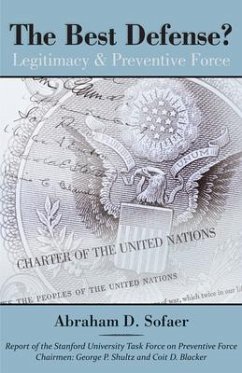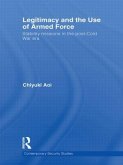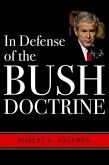Preventing international threats is now the highest priority in providing security against terrorist attacks and other serious dangers. Domestic law enforcement has been reoriented to reflect this priority. Those measures, together with international cooperation, have enhanced protection and prevented attacks. Not surprisingly, then, political leaders and national security experts have considered using preventive measures transnationally which, however, is far more controversial than using preventive force domestically. Since the U.N. Charter's adoption international law has been shaped to restrict severely non consensual, transnational uses of force to those approved by the Security Council or those in response to attacks by hostile states. Nonetheless, national and international leaders and groups claim that greater flexibility is needed to deal effectively with current threats, including terrorism, proliferation of weapons of mass destruction, irresponsible regimes, and gross violations of human rights. The Best Defense? Legitimacy and Preventive Force represents the work of a group of national security experts at Stanford University on issues relevant to whether increased reliance on preventive force is warranted and by what standards such reliance should be governed. The Stanford Task Force on Preventive Force, under former secretary of state George P. Shultz and director of the Freeman/Spogli Institute on International Affairs Coit D. Blacker, conducted several meetings and conferences, domestic and international, to obtain the views of political, academic, and military experts. The task force report examines the legal limits to be imposed on anticipatory uses of force and the dangers and potentially adverse consequences that an increased reliance on preventive force would pose. It collects and evaluates the many uses of force undertaken by states for preventive purposes since the charter's adoption, despite the lack of legal authority for such actions. It concludes that states seem likely to continue to use preventive force in these situations, without Security Council approval, as long as the council remains unwilling or unable to act and that international reaction to these preventive actions will continue to vary based, not on their formal illegality but on circumstances in each case that reflect each action's necessity and consistency with the U.N. charter. The report concludes that states and national-security practitioners should, apart from considering the legality of preventive actions, weigh the legitimacy of such actions by applying standards and following procedures that are likely to enhance the legitimacy, and thus the efficacy, of such uses of force.








